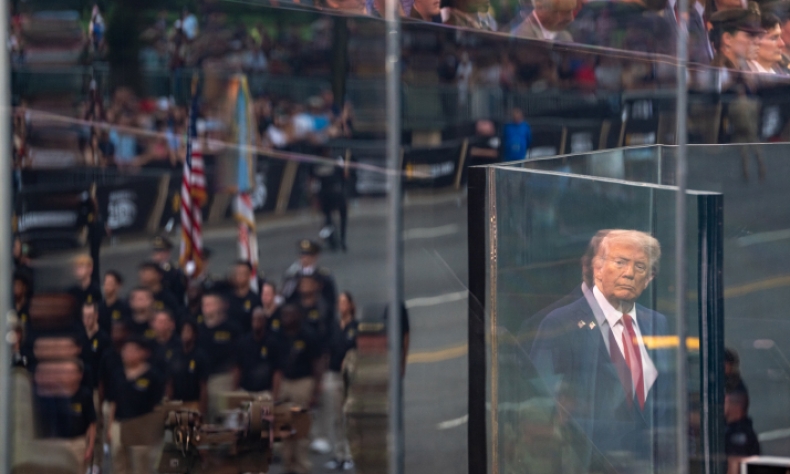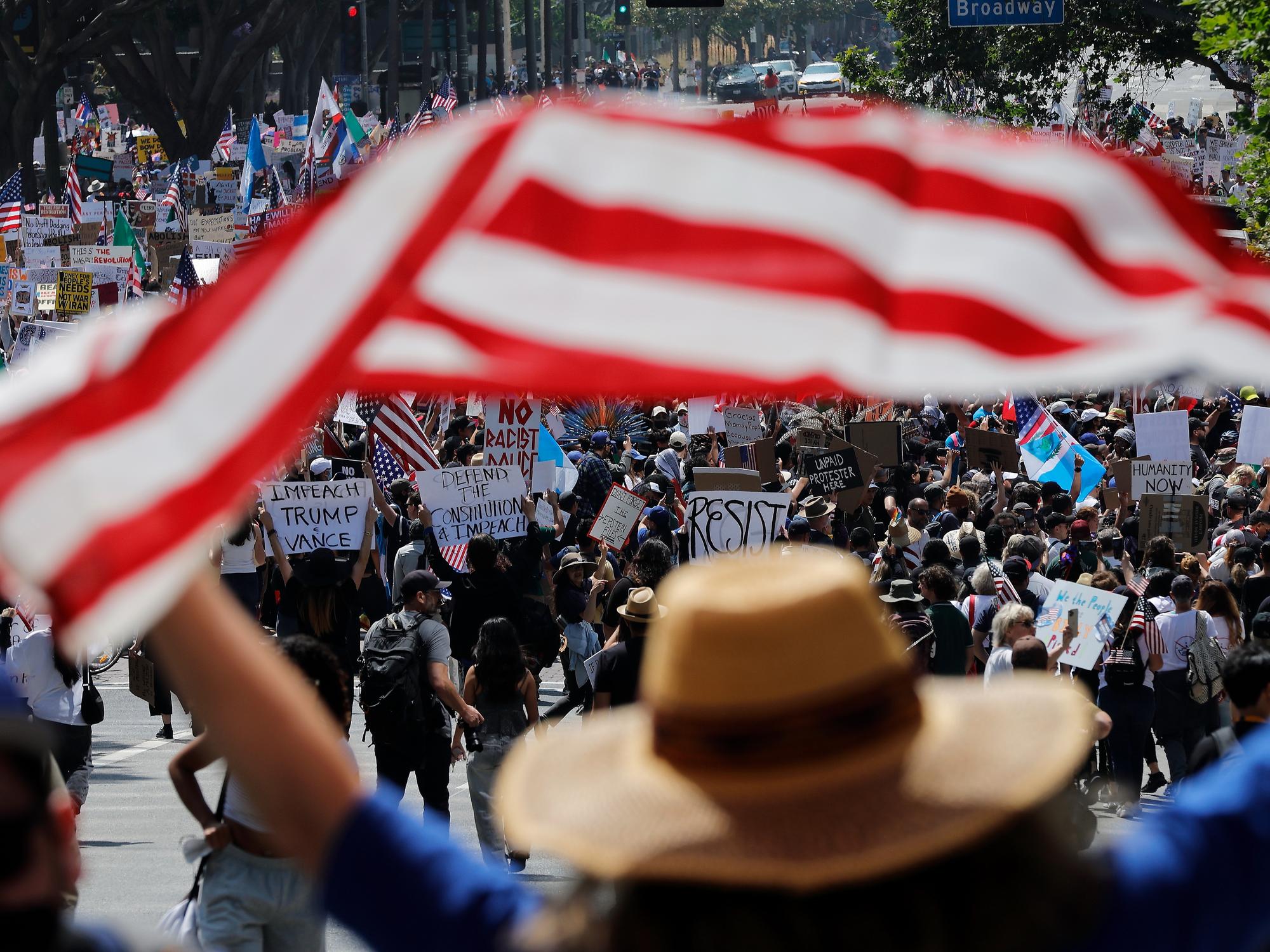The Debate Over the Parade

During World War II, the U.S. military stood unquestionably as a force of justice, embodying the courage and righteousness of humankind. Today, however, in some respects, the U.S. seems in need of the old adage: He who fights monsters should see to it that he himself does not become a monster.
On June 14, the U.S. staged its first large-scale military parade since the conclusion of the Gulf War in 1991. The grand event, which lasted more than two hours, featured over 6,000 active-duty service members, 128 tanks, armored vehicles, and artillery systems, along with 62 military aircraft.
In recent years, America’s global strategy has largely been in retreat—whether through its hasty withdrawal from Afghanistan or the restraint shown in the Red Sea amid attacks by Yemen’s Houthi forces. Against this backdrop, the Donald Trump administration’s insistence on holding the parade can be seen as an effort to restore a sense of national pride, boost troop morale and public confidence, and send a strong deterrent message to potential adversaries.
However, the parade failed to achieve any of these.
Domestically, critics of the president accused him of using the machinery of the state to satisfy his personal vanity, as the event not only coincided with the 250th anniversary of the founding of the U.S. Army but also Trump’s 79th birthday. The high cost drew additional criticism—at a time when the country is making significant cuts to public spending, the parade’s estimated price tag of $45 million sparked widespread condemnation. According to a poll by the Associated Press–NORC Center for Public Affairs Research, nearly 60 percent of respondents said it was not an appropriate use of government funds.
On the day of the parade, more than 2,000 protests under the banner “No Kings” took place simultaneously across the U.S. The organizers, known as “50501”—representing 50 states, 50 protests, and one movement—stated that their goal was to prevent this “corrupt” birthday parade from becoming the focus of public attention.

The core issue may lie in a crisis of faith—not only a reflection on the U.S.’ political system but also a deep uncertainty about the role America is playing on the world stage.
This year is the 80th anniversary of victory in World War II, also known as the World Anti-Fascist War. Several major countries, including the UK and Russia, have held significant military parades to commemorate this historic event. China is also expected to hold a large-scale parade on September 3, The Victory Day of Chinese People’s War of Resistance against Japanese Aggression and the World Anti-Fascist War. These ceremonies embody a collective memory that transcends political systems, honoring humanity’s shared struggle against the darkness of fascism and paying tribute to the peace forged through immense sacrifice.
The U.S., like other countries on the anti-Fascist side, made enormous sacrifices in this war, with 1.07 million military personnel killed or wounded. But in recent years, driven by geopolitical concerns, the U.S. has increasingly downplayed the significance of the World Anti-Fascist War. On the Pacific front, China’s effort in holding back over a million Japanese troops is understated, and the shared sacrifices of Chinese and American forces are gradually forgotten as eyewitnesses pass away. Japan has never fully confronted its wartime atrocities, yet the U.S., seeking to position it as a key partner in containing China, has shown increasing leniency. Heroes who died at Pearl Harbor, Iwo Jima and Okinawa might never have imagined their country would one day ally with a nation that never truly reckoned with its war crime.
A truly powerful military is not defined by how advanced its weapons are, but by whether its soldiers understand what they are fighting for. During World War II, the U.S. military stood unquestionably as a force of justice, embodying the courage and righteousness of humankind. Today, however, in some respects, the U.S. seems in need of the old adage: He who fights monsters should see to it that he himself does not become a monster. It is slowly becoming the very kind of power it once opposed—an unfeeling empire, willing to go to any lengths to preserve its global dominance.
 Facebook
Facebook
 Twitter
Twitter
 Linkedin
Linkedin
 Google +
Google +










